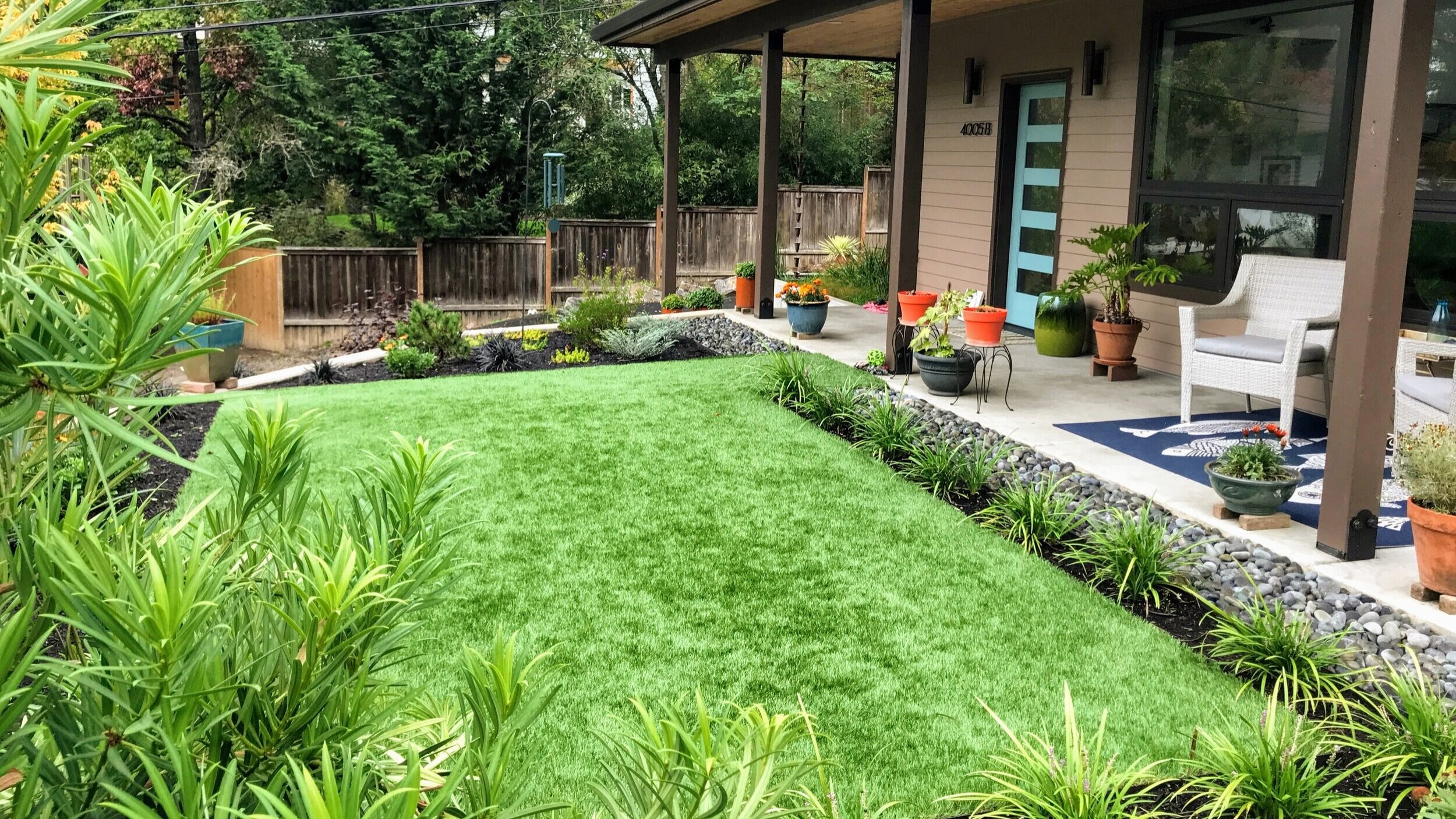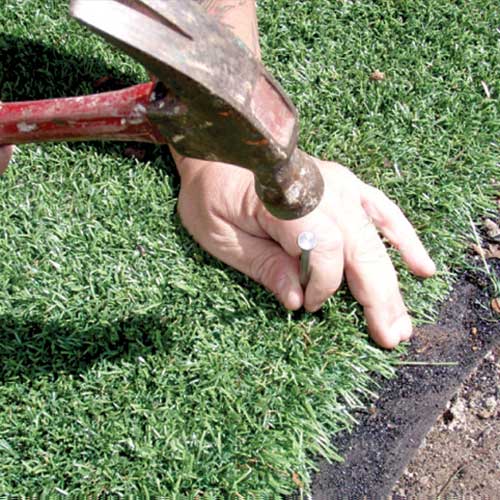Expert Arizona Turf Installation Services for Residential and Commercial Use
Expert Arizona Turf Installation Services for Residential and Commercial Use
Blog Article
Look Into the Environmental Benefits of Opting for Synthetic Grass Solutions
The adoption of man-made grass services offers a compelling chance to deal with pressing environmental obstacles. By dramatically minimizing water use and reducing the application of dangerous chemicals, these alternatives not just advertise sustainable landscape design however additionally safeguard neighborhood ecological communities.
Water Conservation Conveniences
Among one of the most significant benefits of artificial turf is its capability to conserve water. Standard grass yards need substantial irrigation, particularly in locations susceptible to drought or water limitations. On the other hand, artificial lawn does not need watering, considerably decreasing the overall demand for water resources. This function is especially valuable in arid areas where water scarcity is a pushing problem.
By removing the need for normal watering, fabricated turf adds to lasting landscape techniques and helps alleviate the ecological influence of too much water consumption. Furthermore, the conservation of water prolongs to the decrease of overflow, which can bring about dirt disintegration and river air pollution.
In addition, the installation of fabricated lawn allows property owners and municipalities to assign water resources more efficiently, concentrating on important usages such as drinking water and agriculture. The change towards synthetic grass not just advertises responsible water usage yet also lines up with broader ecological goals targeted at maintaining natural resources.
As neighborhoods significantly prioritize sustainability, the water conservation advantages of fabricated turf provide an engaging case for its fostering in property and commercial landscaping tasks.
Decreased Chemical Use
The transition to fabricated lawn dramatically lowers the dependence on chemical treatments typically used in natural turf upkeep. Typical grass monitoring typically involves the application of plant foods, pesticides, and herbicides to promote growth and control bugs. These chemicals can present dangers to human health and wellness, regional wild animals, and the setting, adding to dirt and water contamination.
In contrast, fabricated grass gets rid of the need for these unsafe materials. When set up, it needs minimal maintenance, mainly being composed of normal cleaning and irregular infill replenishment. This reduction in chemical use not just profits the instant atmosphere however likewise adds to wider ecological stability. By minimizing the release of artificial compounds into the environment, fabricated grass advertises much healthier soil and water systems.
In addition, the lack of chemical overflow connected with man-made lawn setups assists safeguard regional rivers from air pollution, sustaining water life and keeping biodiversity. Arizona artificial turf. As neighborhoods significantly prioritize lasting methods, going with man-made grass offers a practical service that lines up with ecological preservation objectives. Via this shift, homeowner can appreciate lush eco-friendly rooms without jeopardizing environmental health, leading the way for a much more sustainable future
Reduced Carbon Footprint

Furthermore, the installation of synthetic grass can cause considerable water conservation. Natural yards require significant amounts of water for watering, which not just includes in the carbon impact related to water extraction and treatment but also strains regional water resources. In comparison, synthetic grass requires very little upkeep, calling for no watering, thus considerably lowering water use and its connected energy prices.
In addition, the longevity of synthetic grass adds to its decreased carbon influence. With a life-span of up to 15 years or more, the need for regular substitutes is lessened, resulting in much less waste and lower energy usage in manufacturing and throwing away conventional grass alternatives. Generally, synthetic grass provides a sustainable choice for ecologically aware landscape design.
Environment Preservation
Habitat preservation is a crucial factor to consider in the dispute over landscaping options, especially when contrasting synthetic grass to visit site all-natural yard. Natural lawn lawns often call for considerable upkeep, including the use of herbicides, plant foods, and chemicals, which can adversely impact local communities. These chemicals can leach right into the dirt and waterways, harming native plants and fauna and interfering with regional habitats.
Synthetic lawn removes the need for unsafe chemicals, therefore shielding nearby wildlife and preserving the honesty of surrounding environments. The installation of artificial lawn can lead to the conversion of previous turf areas into even more biodiverse landscapes, such as pollinator yards or native plant areas, which can sustain neighborhood wildlife.
Ultimately, the transition to synthetic grass not only conserves water and minimizes upkeep efforts but also cultivates an extra unified connection in between human activities and the native environment, advertising environment preservation at the same time.
Long-Term Sustainability
Long-term sustainability is a critical consider reviewing the benefits of man-made lawn over typical grass yards. One of one of the most substantial advantages of fabricated lawn is its longevity; it can last as much as 15-20 years with very little maintenance, whereas all-natural lawn calls for frequent reseeding and substitute. This longevity lowers the need for consistent resources, such as water, fertilizers, and chemicals, which are important for keeping a healthy turf yard.
In addition, man-made grass adds to a reduction in carbon discharges related to lawn treatment tools. Typical lawns often call for gas-powered mowers, trimmers, and blowers, all of which add to air pollution. Arizona artificial turf. On the other hand, synthetic grass removes the need for such tools, promoting a cleaner setting
Furthermore, the production of synthetic grass significantly makes use of recycled products, boosting its sustainability account. As manufacturers embrace eco-friendly practices, the ecological footprint of synthetic grass continues to lessen.

Verdict
The adoption of man-made turf solutions provides substantial ecological benefits, consisting of substantial water conservation, minimized dependence on harmful chemicals, and a reduced carbon footprint. see post Artificial turf help in maintaining natural habitats by decreasing land disruption and advertising lasting sustainability via the usage of durable products. Collectively, these variables emphasize the capacity of synthetic grass to contribute positively to environmental health and wellness and supply a feasible choice to typical landscaping techniques in an increasingly resource-conscious globe.
In comparison, synthetic lawn does not require watering, dramatically lowering the overall demand for water sources. By minimizing the release of synthetic substances right into the community, synthetic grass advertises healthier soil and water systems.
Moreover, the installment of fabricated turf can result in considerable water conservation. In contrast, artificial turf requires minimal upkeep, needing no watering, consequently significantly minimizing water use and its linked power expenses.

Report this page